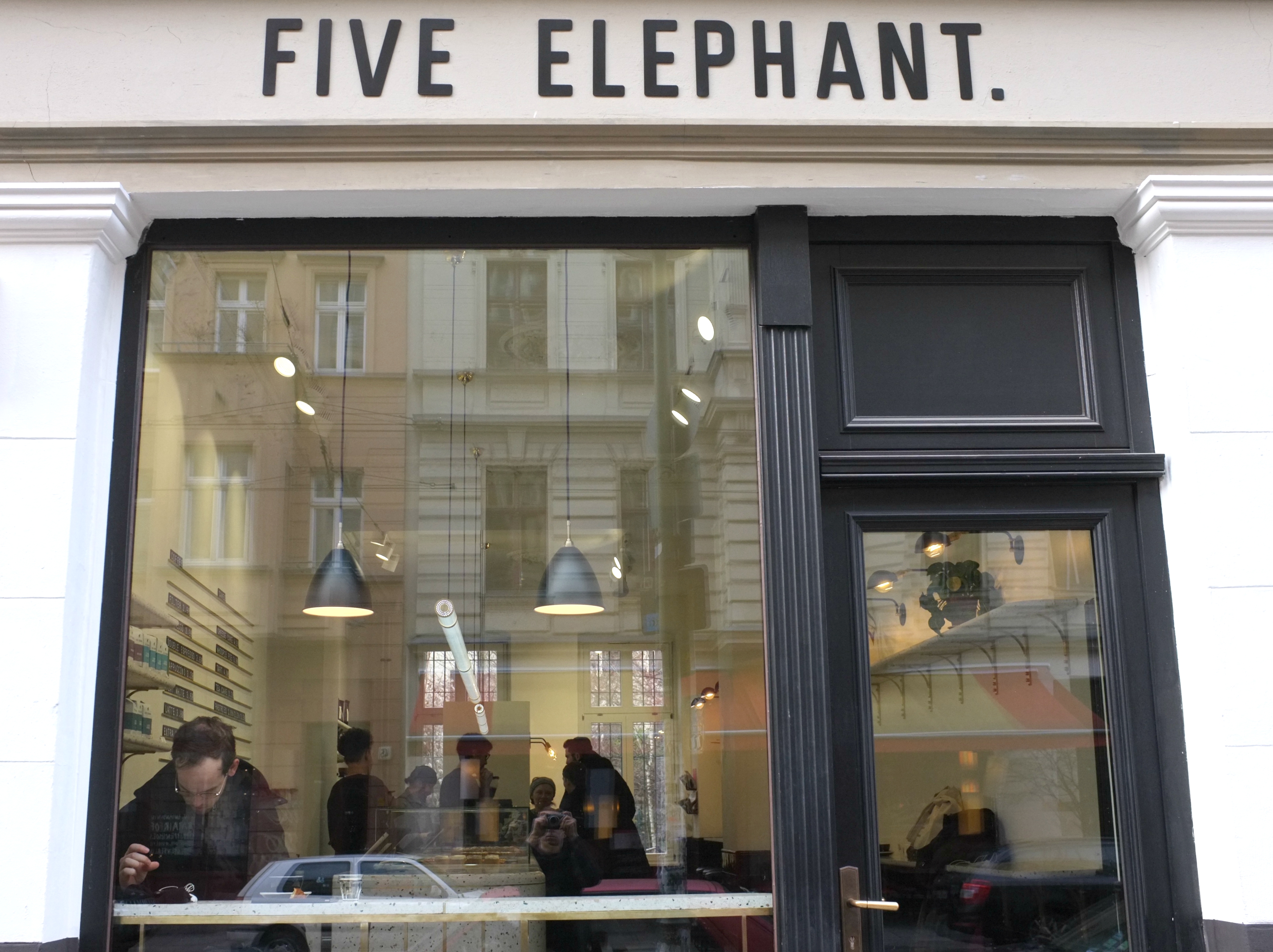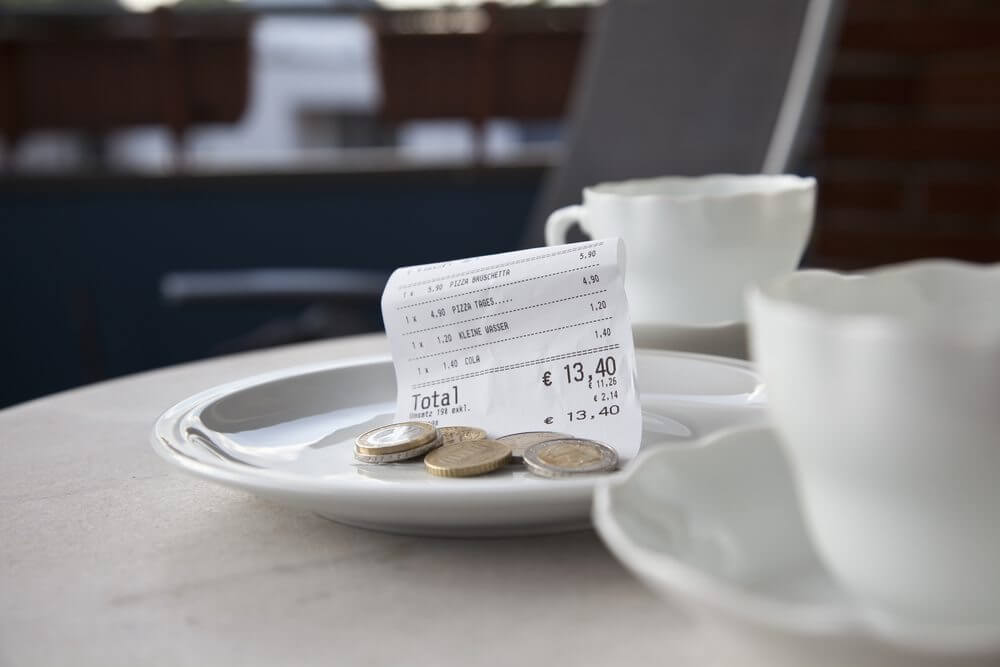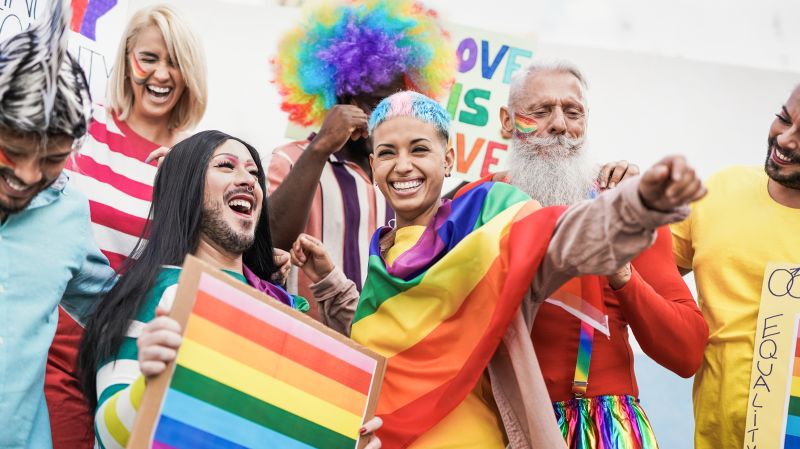
Put in real effort to learn German
 With our intensive language classes you will naturally make quick progress, but don’t hesitate to put in some extra work outside the classroom. Force yourself to speak German when you are out and about in a restaurant, at the cashier in a grocery store, or at your favorite coffee shop. Obviously, this will not work right away, but you don’t have to form complete sentences on the spot, you can also just throw in some individual German words that you’ve learnt. Trying to communicate in German in the „real“ world will make you comfortable with the language vernacular and intricacies. Unfortunately, Berlin will make this extra difficult for you. Being an international hub, you’ll find people fluent in English on every corner of the city. Still, don’t give up. Learning a language always takes time and your efforts will be appreciated by the people you are talking to.
With our intensive language classes you will naturally make quick progress, but don’t hesitate to put in some extra work outside the classroom. Force yourself to speak German when you are out and about in a restaurant, at the cashier in a grocery store, or at your favorite coffee shop. Obviously, this will not work right away, but you don’t have to form complete sentences on the spot, you can also just throw in some individual German words that you’ve learnt. Trying to communicate in German in the „real“ world will make you comfortable with the language vernacular and intricacies. Unfortunately, Berlin will make this extra difficult for you. Being an international hub, you’ll find people fluent in English on every corner of the city. Still, don’t give up. Learning a language always takes time and your efforts will be appreciated by the people you are talking to.
Stay on top of your course work
Do not forget that your classes are an important part of your studying abroad experience. There is obviously value in the act of living abroad by itself, but in the best case your classes allow you to grow in your believes, opinions and knowledge. Studying abroad can put a whole new perspective on familiar issues. Some tips on how to stay motivated for your course work can be found on our blog here.
Don’t travel too much
It might be tempting to spend every weekend in a different city, especially if you have never been to Europe before. Understandably, you want to make the most of your four months in Europe (so little time), but don’t let this take over your Berlin/Germany experience. You made Germany your home base, so go out and explore the country that you are calling your home for the next foreseeable time.
This issue is exactly what one of our former FU-BESTers experienced and here is what she had to say about it:

I wish that I had explored Germany more! I cannot emphasize enough how important it is to spend most weekends in Berlin. To truly live abroad for a semester, you need to learn your city and discover what it is like to be a true Berliner! I do feel like I spent a good deal of time in Berlin, but not enough throughout the rest of Germany. While I traveled to places like Paris and Rome, I missed Schloss Neuschwanstein and Hamburg. There are so many wonders located right in Germany a mere train ride away, and I wish I had been able to see them all during my time in Berlin; however, I have decided that I simply must go back and see everything that I missed.
Travel enough
Having said this, Berlin’s central location makes it perfect for a quick getaway to France, Italy or Spain and you should definitely take advantage of this. Just pick the destinations you are most desperate to see. This way you can still spend quality time in Berlin and will also keep your budget in check.
Go grocery shopping and buy what you usually would not buy at home
Maybe you are the adventurous shopper when it comes to food anyway, but if not, try to get out of your comfort zone. Can you spot food that you usually never buy at home? Now is the time to try stuff. Look for new German inspired recipes that are worth trying. Pinning down a traditional German food is hard, but we would confirm that Germans do like their potatoes. So we suggest trying this recipe.
Go cold turkey on Starbucks & Co
This goes along with our previous point about trying new things. You get accustomed best if you shop and eat locally. And although you will definitely find a Starbucks or McDonald’s easily, it is so much more fun to test local coffee shops (for example Five Elephant in Kreuzberg, which is also famous for the best cheese cake in town!) and local burger joints (for instance Kreuzburger in Kreuzberg and other locations).

Do not get sucked into the international bubble
This is an easy trap to fall in to. Since you are constantly surrounded by fellow international students, it can be easy to get lost in your international bubble. However, this might prevent you from having a true living abroad experience. You can find our attempt to give you a little ‚how to‘ (get out of the international bubble) on our blog here.
Get to know the Berlin way of life
Or better: get to know and be open to the new way of life that you’ll be living abroad that might sometimes be less comfortable than what you are used to. This sounds like an obvious given, but some students are still surprised by how much they need to adjust to their new environment. For instance, a common complaint is the „commute issue“: most students in Berlin have a pretty long commute. One hour from door to door is nothing out of the ordinary. It is not ideal, but accepted by everyone. Living close to campus is not the reality for most students, since the vast majority prefer to live in more central districts. In Germany, and Berlin specifically, life does not happen on campus, but in the city itself. This might be different from how things are at home, but don’t stress about your daily commute. Take it as an opportunity to ease in and out of your day, read, listen to podcasts, observe Berliners, … .
Don’t stress yourself and have fun
We think it is a good idea to be aware of all of these points and also maybe implement one thing or another into your daily life in Berlin. That being said, stressing about any of these issues would have quite the opposite effect. You have decided to study abroad, because you want to have an experience. This experience will most likely consist of both ups and downs, which is part of studying abroad. This lets us believe that the best tip of all is not to stress yourself out too much and go with the flow of living abroad.
Picture Sources: https://d37sy4vufic209.cloudfront.net/website/_next/static/dynamic/ada4effa7514c4cd238c2f3359658d32/700.jpg ; https://ychef.files.bbci.co.uk/live/624×351/p08fgqkq.jpg ; https://sprudge.com/wp-content/uploads/2016/12/DSCF3390-2.jpg ;



 To get a sense of what the lgbtqia+ culture is like in Europe and to keep up to date with country policies you can make use of different lgbtq+ organizations out there, like the
To get a sense of what the lgbtqia+ culture is like in Europe and to keep up to date with country policies you can make use of different lgbtq+ organizations out there, like the 
